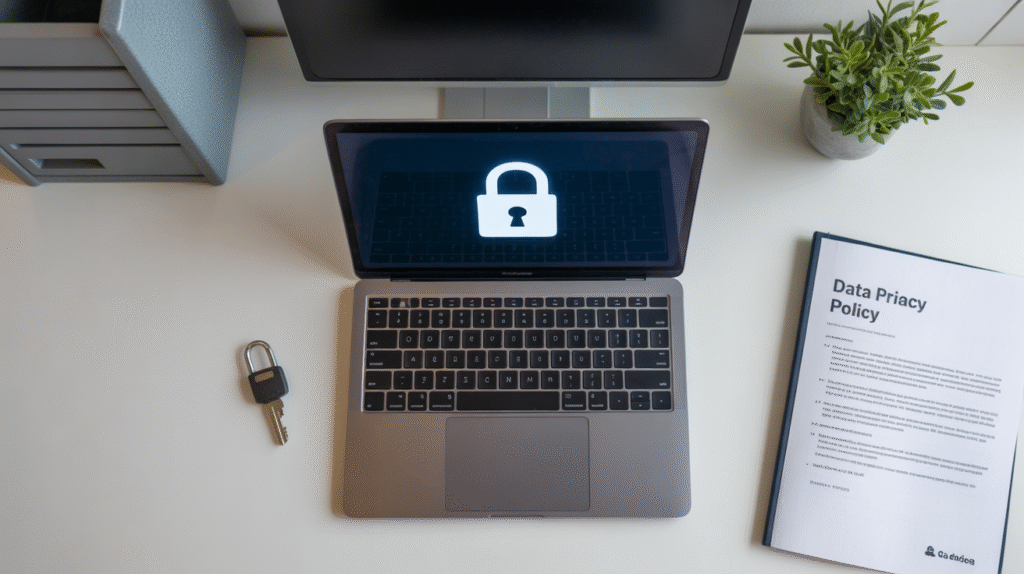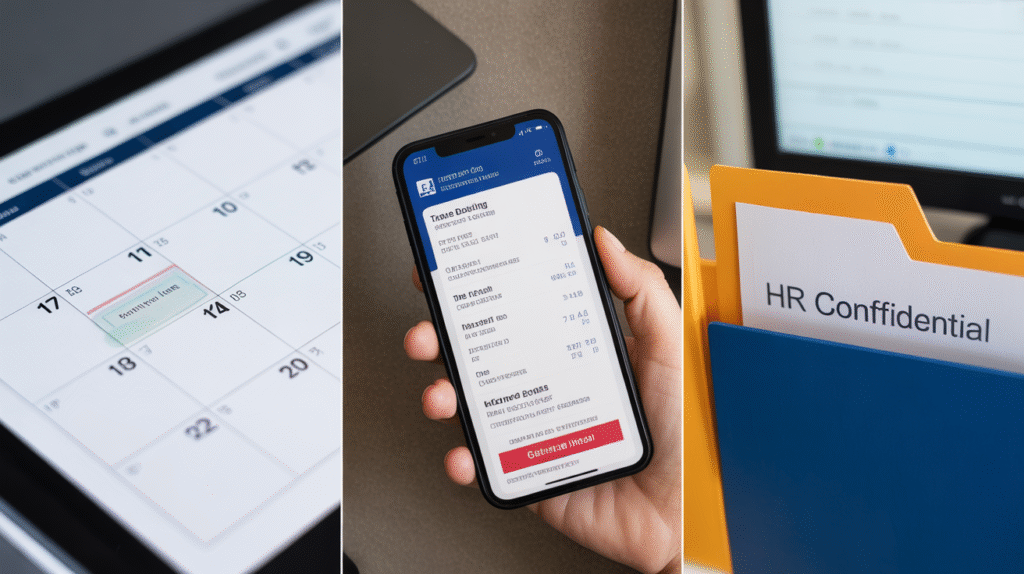
GDPR & The Executive Assistant: A Compliance Checklist for Handling C-Suite Data in the EU
In the intricate world of executive support, Executive Assistants (EAs) and Personal Assistants (PAs) are the ultimate custodians of sensitive information. From managing C-suite calendars and travel itineraries to handling confidential corporate communications and personal affairs, EAs routinely process a vast spectrum of data that, more often than not, falls under the stringent regulations of the General Data Protection Regulation (GDPR). The notion that GDPR is solely an IT or legal department concern is a dangerous misconception; for EAs operating within the EU, or handling data pertaining to EU citizens, a deep understanding of GDPR & the Executive Assistant is not just beneficial, but an absolute necessity for compliance.
The stakes are astronomically high. Non-compliance with GDPR can lead to crippling fines, reputational damage, and severe legal repercussions for both the individual EA and their organization. For a professional whose role is built on trust and discretion, a data breach stemming from negligence or ignorance can be career-ending. This reality underscores why specialist EA recruitment services increasingly screen for GDPR awareness, and why providers of personal assistance services must embed compliance at the core of their operational protocols.
This comprehensive guide aims to demystify GDPR for the modern EA. We will provide a pragmatic compliance checklist for handling C-suite data in the EU, breaking down complex legal jargon into actionable steps. By understanding the core principles, common pitfalls, and best practices, EAs can transform a potential liability into a strategic advantage, reinforcing their position as indispensable partners in the C-suite.
The GDPR Imperative for Executive Assistants: Beyond the Legal Department
GDPR is often perceived as a challenge exclusively for large corporations or data-heavy marketing departments. However, this perspective overlooks the daily realities of an Executive Assistant, who handles ‘personal data’ at almost every touchpoint.
What is Personal Data for an EA?
Under GDPR, ‘personal data’ is any information relating to an identified or identifiable natural person. For an EA, this includes:
- Contact Information: Names, addresses, phone numbers, email addresses of clients, partners, and other executives.
- Calendar & Travel Details: Meeting attendees’ names, flight numbers, hotel bookings, dietary requirements – all link back to individuals.
- HR Data (often via C-suite access): Performance reviews, salary information, personal issues discussed with the executive.
- Personal Affairs of the Executive: Family details, medical appointments, private travel, financial statements, and other highly sensitive information.
- Client & Stakeholder Communications: Email threads, meeting notes, project discussions involving identifiable individuals.

- Contact Information: Names, addresses, phone numbers, email addresses of clients, partners, and other executives.
- Calendar & Travel Details: Meeting attendees’ names, flight numbers, hotel bookings, dietary requirements – all link back to individuals.
- HR Data (often via C-suite access): Performance reviews, salary information, personal issues discussed with the executive.
- Personal Affairs of the Executive: Family details, medical appointments, private travel, financial statements, and other highly sensitive information.
- Client & Stakeholder Communications: Email threads, meeting notes, project discussions involving identifiable individuals.
Even seemingly innocuous details, when combined, can constitute personal data. For instance, knowing an individual’s flight number and meeting schedule allows for identification and tracking, which falls under GDPR’s scope.
The EA as a “Data Processor” or “Data Controller”
Depending on their responsibilities, an EA can act as both a ‘data controller’ and a ‘data processor.’
- Data Controller: If an EA, perhaps on behalf of their executive, determines why and how personal data is processed (e.g., deciding to collect contact details for a networking event), they are acting as a data controller.
- Data Processor: More commonly, an EA acts as a data processor, carrying out processing activities on behalf of their organization (the data controller). For example, booking travel based on instructions or managing an executive’s email inbox.
Understanding this distinction is crucial, as different legal responsibilities apply to each role. Even as a processor, an EA has significant obligations, particularly regarding data security and confidentiality. This dual role further emphasizes why GDPR literacy is non-negotiable for C-suite support.
The Six Core Principles of GDPR: An EA’s Guide to Ethical Data Handling
At the heart of GDPR are six principles that govern the lawful processing of personal data. EAs must internalize these to ensure every data interaction is compliant.
1. Lawfulness, Fairness, and Transparency
Every piece of personal data handled by an EA must be processed lawfully, fairly, and transparently.
- Lawfulness: Is there a legal basis for processing this data? (e.g., explicit consent, contractual necessity, legitimate interest). EAs should never process data without understanding its legal basis. For instance, if booking a dinner for an executive with a client, the processing of dietary requirements must have a lawful basis, typically consent.
- Fairness: Data should not be processed in a way that is detrimental, unexpected, or misleading to the individual.
- Transparency: Individuals should be informed about how their data is being used. While an EA might not directly communicate this, they should understand their organization’s privacy notices and data handling policies.
2. Purpose Limitation
Personal data should only be collected for specified, explicit, and legitimate purposes and not further processed in a manner that is incompatible with those purposes. An EA collecting client contact details for meeting scheduling should not then use that data for personal outreach or unrelated marketing without new consent. Each data point must have a clearly defined purpose.
3. Data Minimisation
Collect only the data that is absolutely necessary for the specified purpose. For example, if booking a flight, an EA needs a name and date of birth, but not necessarily marital status or medical history unless directly relevant to the booking (e.g., special assistance). EAs should challenge requests for excessive data from their executive or others.
4. Accuracy
Personal data must be accurate and, where necessary, kept up to date. If an EA is maintaining a contact list, they have a responsibility to ensure that addresses, phone numbers, and other details are correct. Regularly reviewing and updating contact databases is a key compliance task.
5. Storage Limitation
Personal data should be kept for no longer than is necessary for the purposes for which it is processed. This is critical for EAs managing old files, email archives, or physical documents. Implementing clear data retention policies for both digital and physical records is vital. Old board papers, client lists, or HR documents often contain personal data and should be securely deleted or destroyed once their retention period expires.
6. Integrity and Confidentiality (Security)
Personal data must be processed in a manner that ensures appropriate security of the personal data, including protection against unauthorized or unlawful processing and against accidental loss, destruction, or damage, using appropriate technical or organizational measures. This principle is perhaps the most hands-on for an EA, dictating how they store, transmit, and access data.
The EA’s GDPR Compliance Checklist: Practical Steps for C-Suite Data
Translating the GDPR principles into daily practice requires a systematic approach. This checklist provides actionable steps for EAs to enhance their compliance posture.
1. Data Inventory & Mapping for EA Roles
- Identify all personal data handled: List every type of personal data you process (contacts, travel, HR, executive’s personal details, etc.).
- Document sources and destinations: Where does this data come from, and where does it go? (e.g., CRM, email, personal files, third-party travel agents).
- Understand the lawful basis: For each data type, confirm the legal basis for processing (consent, contract, legitimate interest, etc.).
2. Secure Data Storage & Access Management
- Password Protect Devices: Ensure all devices (laptops, phones, tablets) used for work are password or biometric protected.
- Encrypt Sensitive Files: Utilize encryption for highly sensitive documents or folders, especially if stored on cloud services or external drives.
- Access Control: Only access data that is necessary for your role. Do not share passwords or account access with others.
- Physical Security: Securely store physical documents (e.g., in locked cabinets) when not in use. Shred sensitive papers before disposal.
3. Data Transmission & Sharing Protocols
- Secure Email: Use encrypted email or secure file-sharing platforms for transmitting sensitive personal data internally and externally. Avoid sending confidential information via standard, unencrypted email whenever possible.
- Third-Party Vendors: When sharing data with travel agents, event organizers, or other service providers, ensure they are also GDPR compliant and have appropriate data processing agreements in place.
- Minimise Sharing: Only share the minimum necessary personal data with third parties.
4. Data Retention & Deletion Policies
- Know Retention Periods: Understand your organization’s data retention policies for different types of data.
- Regular Clean-up: Periodically review and securely delete or archive old emails, files, and contact lists that are no longer necessary for their original purpose.
- Secure Deletion: When deleting digital data, ensure it’s truly gone (e.g., using secure deletion tools, not just moving to trash). For physical documents, cross-shredding is essential.
5. Managing Data Subject Rights
- Right to Access: Individuals have the right to request access to their personal data. EAs should know who to escalate such requests to (e.g., DPO, legal team).
- Right to Rectification: Individuals can ask for inaccurate data to be corrected. EAs should be proactive in updating contact details and other personal information they manage.
- Right to Erasure (‘Right to be Forgotten’): Individuals can request their data be deleted. Again, EAs must know the internal process for handling such requests.
- Other Rights: Familiarize yourself with the rights to restriction of processing, data portability, and objection to processing, and know your organization’s internal protocols.
6. Incident Response & Breach Reporting
- Recognize a Breach: Understand what constitutes a personal data breach (e.g., unauthorized access, loss, or disclosure).
- Immediate Reporting: If a breach is suspected or confirmed, immediately inform your manager, DPO, or IT security team. Do NOT attempt to conceal or resolve it independently.
- Documentation: Document all steps taken, communications, and evidence related to a breach, however minor.
Navigating the Nuances: Travel, Events, and Executive Personal Data
The EA’s role frequently involves processing personal data in highly specific contexts, each presenting its own compliance challenges.
Travel Management: A Deep Dive into Passenger Data
Booking executive travel involves collecting names, dates of birth, passport details, loyalty program numbers, and often dietary or medical information.
- Minimise Data to Airlines/Hotels: Only provide the absolutely necessary information to third-party travel providers.
- Consent for Sensitive Data: If special dietary requirements (e.g., religious, medical) or accessibility needs are requested, ensure explicit consent from the individual before sharing. This is considered ‘special category data’ under GDPR.
- Secure Portals: Utilize secure corporate travel portals rather than sending sensitive details via unencrypted email.
- Retention: Delete travel details once the trip is completed and the relevant retention period for expense reconciliation has passed.
Event Planning: Guest Lists and Dietary Details
Organizing events, whether internal or external, requires managing guest lists, RSVPs, and often dietary and accessibility needs.
- Consent for Marketing: If collecting data for future event invitations or marketing, ensure clear, explicit consent is obtained.
- One-Time Use: If data is collected solely for a specific event, clarify this to attendees and delete the data shortly after the event, adhering to storage limitation.
- Anonymize Where Possible: If reporting on attendance trends, try to anonymize the data rather than using individual names.
Executive’s Personal Affairs: A Minefield of Sensitivity
EAs supporting high-net-worth individuals often handle intensely private information, from personal finances to family health matters.
- Heightened Security: These categories of data require the highest level of security and confidentiality.
- Clear Instructions: Ensure your executive provides clear instructions on how they want this data managed and who, if anyone, it can be shared with.
- Separate Storage: Consider keeping personal affairs data separate from corporate data, perhaps on a dedicated encrypted drive or secure cloud partition.
- Legal Basis: Always question the legal basis for processing highly personal data, especially if it involves family members or sensitive health information.



The Role of EA Recruitment Services in GDPR Compliance
For companies seeking top-tier executive support, GDPR compliance is no longer a ‘nice-to-have’ but a fundamental hiring prerequisite. This is where specialist EA recruitment services prove invaluable.
Screening for GDPR Awareness and Training
Leading EA recruiters understand that an Executive Assistant is often the first line of defense for data security. They now incorporate GDPR knowledge into their screening process, asking candidates about:
- Their understanding of personal data and sensitive personal data.
- Their experience with data protection protocols.
- How they would handle a potential data breach or a data subject request.
- Their approach to secure document management and digital hygiene.
This ensures that only EAs with a foundational understanding of data protection are presented to clients, reducing the hiring risk significantly.
Providing Industry-Specific Training and Resources
Beyond initial screening, specialist recruiters and personal assistance services can also play a role in ongoing education. They can:
- Offer bespoke GDPR training modules tailored for EAs.
- Provide up-to-date resources and best practice guides.
- Connect EAs with legal experts for specific queries.
This continuous professional development ensures that EAs remain current with evolving regulations and best practices, mitigating organizational risk.
The GDPR-Conscious EA as a Strategic Asset
The landscape of executive support has fundamentally shifted. For the modern professional, understanding GDPR & the Executive Assistant is not an optional extra; it is a core competency that underpins trust, mitigates risk, and elevates the EA’s role to a strategic level. By diligently applying the compliance checklist for handling C-suite data in the EU, EAs can move beyond passive awareness to active guardianship of sensitive information.
This proactive approach to data protection not only safeguards the organization from significant legal and financial penalties but also enhances the EA’s professional credibility. It demonstrates an astute understanding of critical business risk, positioning the EA as an indispensable partner in navigating the complexities of the digital age. As the demands on the C-suite intensify, the GDPR-conscious EA, empowered by robust training and adherence to best practices, becomes a formidable asset – a silent sentinel of data integrity and confidentiality in an increasingly vulnerable world. Both employers leveraging EA recruitment services and professionals offering personal assistance services must recognize that GDPR compliance is not just about avoiding fines; it’s about building an unshakeable foundation of trust and operational excellence.